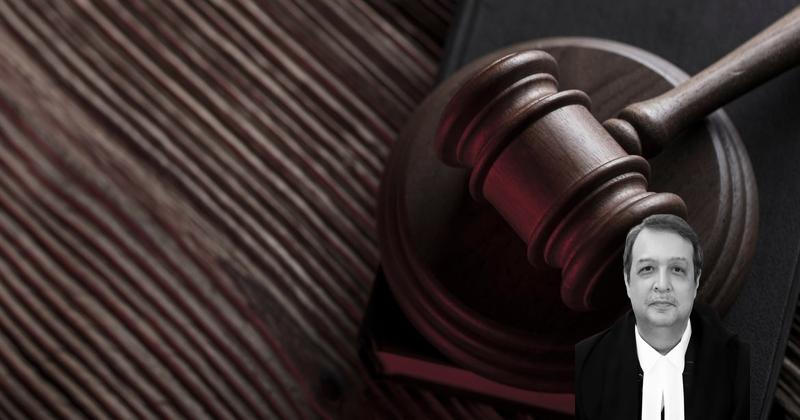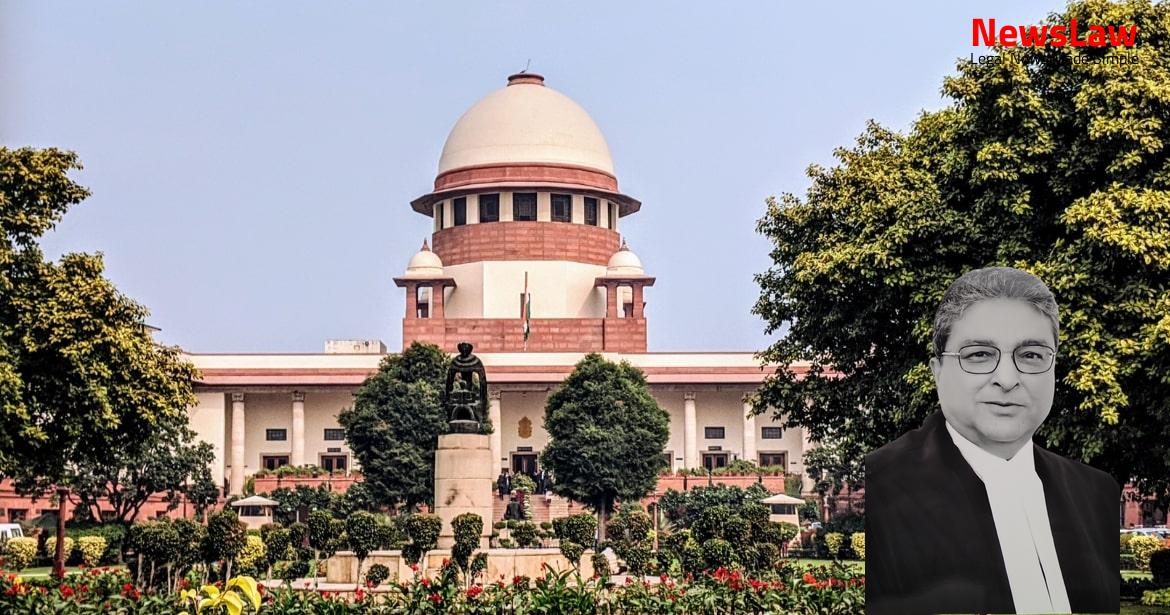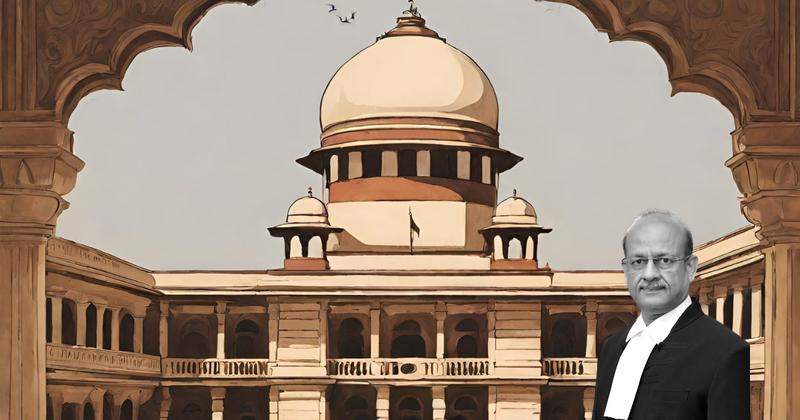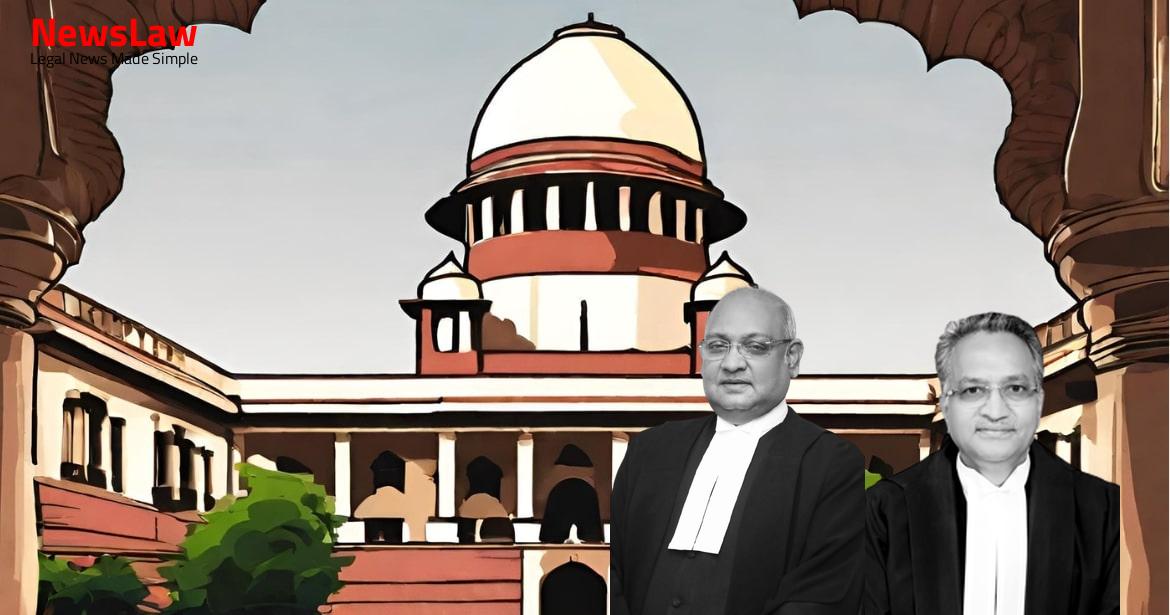1, 3 and 4 respectively herein along with six other co-accused were put to trial in the P a g e 2 | 22 Court of Additional Sessions Judge-VII, Vaishali, Hajipur, District: Vaishali at Hajipur (Bihar) in Sessions Trial No 280/2019 for the offences punishable under Sections 302, 120-B, 506 respectively read with Section 34 of the Indian Penal Code, 1860 (for short, ‘the IPC’) and Section 27 of the Arms Act, 1959 (for short, ‘the 1959 Act’) The three respondents herein, namely Jai Shankar Chaudhary, Abhay Kumar and Ram Babu respectively were held guilty by the Trial Court, of the offence of murder of the brother of the appellant herein, namely, Manish Kumar. After sometime the Pramukh came back in the same vehicle and as he was heading towards his chamber at about 03:00 P.M., the accused Jai Shankar Chaudhary and Abhay Kumar came and opened fire on informant’s brother, the Block Pramukh upon the exhortation by accused Ram Babu Sahni to kill him. also states that Umesh Singh Kushwaha, M.L.A., Mahnar, Binod Chaudhary s/o Ram Lakhan Chaudhary, Ajeet Kumar s /o Ram Babu Sahni Village Dulaur P.S. Jandaha, Kundan Sahni (Prakhand Shikshak) s/o Ram Nandan Sahni Vill Narharpur, Randhir Kumar S/o Late Masudan Singh Vill Narharpur, Ranjeet Kumar S/o
Ram Briksh Singh Viii Narharpur, all from P.S. 2 Anil Kumar Sahni, P.W 3 Rup Kala Devi, P.W. 9 Shobhakant Paswan (Investigating Officer) and P.W. On considering the submissions made by learned counsel of parties and the conjoint perusal of prosecution evidence including the cross-examination done by learned counsels for defence this court finds that the prosecution has led credible evidence that on 13-08-2018, at about 03:00 PM at Jandaha block, the accused Ram Babu Sahni and Binod Chaudhary exhorted Jai Shankar Chaudhary and Abhay Kumar Sahni to kill Manish Sahni. When he arrived back at about 03:00 P.M., as he was heading towards his chamber, the accused Ram Babu Sahni and Binod Chaudhary exhorted Jai Shankar Chaudhary and Abhay Kumar Sahni to kill Manish Sahni. 1 Raj Kumar Sahni in his evidence has proved that the Pramukh Manish Sahni came from B.D.O’s vehicle and was heading towards his chamber, when accused Jai Shankar alongwith another opened fire over Manish Sahni. 8 Saroj Kumar Singh also claims to be an eye witness and testifies the fact that on the instigation of Binod Chaudhary, the accused Jai Shankar Chaudhary opened fire over Manish Sahni and he does not identify the other person, who also shot bullet over Manish Sahni. Hence, on the basis of material and the evidence both oral and documentary, as available on record, this court arrives at conclusion that the prosecution has proved its case against accused Jai Shankar Chaudhary, Abhay Kumar alias Abhay Sahni and Ram Babu Sahni, beyond reasonable doubts that on exhortation of Ram Babu Sahni, the other two accused Jai Shankar Chaudhary and Abhay Kumar @ Abhay Sahni opened fire over Manish Sahni, causing his death and thereby committing his murder.
The High Court suspended the substantive order of sentence of all the three convicts and ordered their release on bail vide the impugned order dated 16.09.2022. Rigorous imprisonment for Life 50, 000/-
Rigorous imprison ment for six months 27 of The Arms Act Rigorous imprisonment for five years – – CRIMINAL APPEAL (DB) NO. Rigorous imprisonment for Life 50, 000/- Rigorous imprison ment for six months 27 of the Arms Act Rigorous imprisonment for five years – – Ram Babu Sahni 302/34 of the I.P.C.
Learned counsel appearing on behalf of the appellants have submitted that for the occurrence said to have taken place at 03:00 pm, at a public place, on 13.08.2018, the First Information Report came to be registered on 14.08.2018, based on written report of the informant (P.W.-7) submitted at 01:00 pm. It has further been argued that though the appellants were produced during the course of the trial through video conference from the jail, but there is no evidence that the prosecution’s witnesses identified these appellants during the course of the trial. We have perused the original copy of the First Information Report available with the lower court records from which it is manifest that there have been over-writings as regards the date when the said written report of the informant (P.W.-7) was submitted in the police station. The informant and others are said to have taken the deceased, in injured condition, to a private hospital, where he was declared dead. P a g e 10 | 22
Also Read: https://newslaw.in/?p=548
Let the appellants, namely, Jai Shankar Chaudhary [In Criminal Appeal (DB) No 322 of 2021], Abhay Kumar @ Abhay Sahni and Ram Babu
Sahni
[In Criminal Appeal (DB) No 411 of 2021] be released on bail during the pendency of appeal on furnishing bail bond of Rs. Chandrachud, the learned counsel appearing for the appellant vehemently submitted that the High Court committed a serious error in passing the impugned order thereby releasing the three convicts on bail pending final disposal of their respective appeals by suspending the substantive order of their sentence, in exercise of power under Section 389 of the Code of Criminal Procedure, 1973 (for short, ‘the CrPC’).
Also Read: https://newslaw.in/?p=554
Shukla, the learned Senior Counsel appearing for the convicts, on the other hand, vehemently opposed the appeals, submitting that no error not to speak of any error of law could be said to have been committed by the High Court in passing the impugned order suspending the substantive order of sentence, imposed on the respective convicts by the Trial Court. The learned Senior Counsel further submitted that this Court should be slow in exercise of its power under Article 136 of the Constitution while P a g e 12 | 22 looking into a discretionary order, passed by the High Court under Section 389 of the CrPC. — (1) Pending any appeal by a convicted person, the Appellate Court may, for reasons to be recorded by it in writing, order that the execution of the sentence or order appealed P a g e 13 | 22 against be suspended and, also, if he is in confinement, that he be released on bail, or on his own bond. (3) Where the convicted person satisfies the Court by which he is convicted that he intends to present an appeal, the Court shall, — (i) where such person, being on bail, is sentenced to imprisonment for a term not exceeding three years, or (ii) where the offence of which such person has been convicted is a bailable one, and he is on bail, order that the convicted person be released on bail, unless there are special reasons for refusing bail, for such period as will afford sufficient time to present the appeal and obtain the orders of the Appellate Court under sub-section (1), and the sentence of imprisonment shall, so long as he is so released on bail, be deemed to be suspended. The P a g e 14 | 22 Black’s Law Dictionary (Seventh Edition) describes the word’suspension’ to mean, inter alia, an act of temporarily delaying, interrupting or terminating something. From perusal of Section 389 of the CrPC, it is evident that save and except the matter falling under the category of sub-section 3 neither any specific principle of law is laid down nor any criteria has been fixed for consideration of the prayer of the convict and further, having a judgment of conviction erasing the presumption leaning in favour of the accused regarding innocence till contrary recorded by the court of the competent jurisdiction, and in the aforesaid background, there happens to be a fine distinction between the prayer for bail at the pre-conviction as well as the post-conviction stage, viz Sections 437, 438, 439 and 389(1) of the CrPC. Would it be just at all for the Court to tell a person: ‘We have admitted your appeal because we think you have a prima facie case, but unfortunately we have no time to hear your appeal for quite a few years and, therefore, until we hear your appeal, you must remain in jail, even though you may be innocent?’ What confidence would such administration of justice inspire in the mind of the public? It may quite conceivably happen, and it has in fact happened in a few cases in this Court, that a person may serve out his full term of imprisonment before his appeal is taken up for hearing. It all depends on the facts and circumstances of each case and it cannot be said there is any absolute rule that because a long period of imprisonment has expired bail must necessarily be granted.” (Emphasis supplied) 26. The question should be posed whether the accused deserves to be enlarged on bail or not and only thereafter issue of imposing conditions would arise.
When a convicted person is sentenced to a fixed period of sentence and when he files an appeal under any statutory right, suspension of sentence can be considered by the appellate court liberally unless there are exceptional circumstances. Observations on merits, one way or the other, therefore, are likely to prejudice one or the other party to the appeal. It has also been observed in some of the cases that normal practice in such cases is not to suspend the sentence and it is only in exceptional cases that the benefit of suspension of sentence can be granted. One of the essential ingredients of Section 389 is the requirement for the appellate court to record reasons in writing for ordering suspension of execution of the sentence or order appealed. However, in case the appellate court is inclined to consider the release of the convict on bail, the Public Prosecutor shall be granted an opportunity to show cause in writing as to why the appellant be not released on bail. Section 389 of the Code deals with suspension of execution of sentence pending the appeal and release of the appellant on bail.
In the instant case, the only factor which seems to have weighed with the High Court for directing suspension of sentence and grant of bail is the absence of allegation of misuse of liberty during the earlier period when the accused-respondents were on bail. Rattan Kumar Jaiswal and Another reported in (2002) 9 SCC 366, it was held by this Court that in cases involving conviction under Section 302 of the IPC, it is only in exceptional cases that the benefit of suspension of sentence can be granted. Bearing in mind the aforesaid principles of law, the endeavour on the part of the Court, therefore, should be to see as to whether the case presented by the prosecution and accepted by the Trial Court can be said to be a case in which, ultimately the convict stands for fair chances of acquittal. Upon cursory scanning of the evidence on record, we are unable to agree with the contentions coming from the learned Senior Counsel for the convicts that, either there is absolutely no case against the convicts or that the evidence against them is so weak and feeble in nature, that, ultimately in all probabilities the proceedings would terminate in their favour.
Case Title: OMPRAKASH SAHNI Vs. JAI SHANKAR CHAUDHARY AND ANR. ETC. (2023 INSC 478)
Case Number: Crl.A. No.-001331-001332 / 2023



